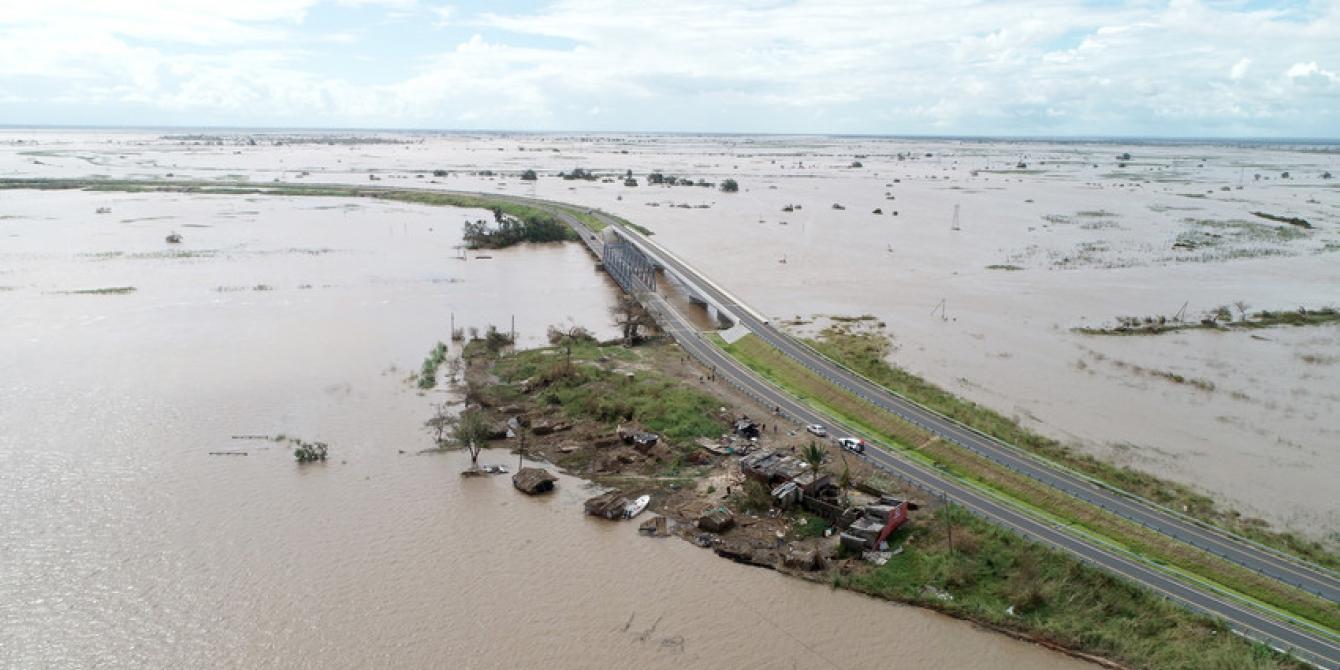
The road EN6 (national road number six) cut off by the cyclone. This road normally leads to Nhamatanda, Inchope, Chimoio. Because of this a lot of people are cut off from, and can’t be reached.Photo:Tina Kruger/Oxfam Novib
Africa Climate Week: Critical Look at Now and the Future
Wednesday, Mar 27, 2019
The Africa Climate Week organized by the United Nations Framework Convention on Climate Change (UNFCCC) and hosted by the Government of Ghana has just ended.
The event held on the 18th and 22nd March sought to broaden stakeholder engagement and will be instrumental in demonstrating that there is genuine international support for stepping-up climate action.
The convening brought together diverse actors drawn from the public and private sector, African policy makers and leveraged on the key outcomes of COP 24 and the just-concluded Fourth Session of the United Nations Environmental Assembly - UNEA4 that took place in Nairobi from 11th to 15th March 2019.
Katowice Conference outcome
The outcome of the Katowice Conference of Parties 24 Negotiation breathed life to the Paris Agreement as it includes guidelines that will implement the framework by setting out how countries will provide information about their Nationally Determined Contributions (NDCs), which includes mitigation and adaptation measures as well as details of financial support for climate action in developing countries.
The Nairobi talks (UNEA4), laid the foundation for a radical shift to a future that is more sustainable, one that will harness innovation to tackle environmental challenges; and the use of throwaway plastics will be significantly reduced, and development will no longer cost planet earth.
To strengthen and build on the two outcomes, Africa Climate Week 2019 was an inclusive space for CSOs, women farmers living in rural areas, youth in agriculture, local communities and African movements and coalitions organized themselves to ensure that their voices are heard to influence the outcome of the ACW. There was an opportunity for all actors to interact showcasing groundbreaking action in the continent with the event providing inspiration to Countries’ implementation of Nationally Determined Contributions (NDCs) within the Paris Agreement and climate action to realize the sustainable development goals (SDGs) and achieve the 2030 Agenda.
The political class is stealing and robbing our future and those of the generations to come by not acting to tackle climate change. The greed and elfishness of the global elite is threatening the African continent’s ability to live a safe and secure life!
Cyclone ‘I die’ or is it a stolen future?
Tragically, monster storms are becoming the ‘new normal.’ The more wealthier polluters spew emissions, the more lives and livelihoods are wrecked by climate change. Cyclone Idai in Mozambique, Zimbabwe and Malawi is a tragic example of how those least responsible for the climate problem are hardest hit. A substantial number of over 500,000 women, men and children displaced by the storm will never return home, and millions more will need long-term support to rebuild their homes and climate-proof them and their communities!
The recent Intergovernmental Panel on Climate Change (IPCC) report is clear that things could get much worse without immediate action. Extreme weather events like Cyclone Idai demonstrate the urgency for wealthy emitters to lead in reducing emissions faster and support vulnerable communities in the worst-hit areas (who have had little hand in causing the climate crisis) to cope with the impacts - through, for example, safety nets, or more effective early warning systems for when disaster strikes.
Sadly, tragedies like Cyclone Idai are becoming as foreseeable as they are preventable.
This is a clarion call for all nations, companies, and consumers to reverse course towards a climate-friendly future.
At Oxfam Pan Africa Programme we actively support broader and thematic efforts that address citizens freedom from hunger, right to food, land ownership and climate justice by advocating for increased, responsible and accountable public and private investment that supports small scale farmers, especially women in realizing their rights and entitlements to food security, land ownership and climate justice.
You too can help flood affected people in Malawi, Mozambique and Zimbabwe


 Follow us on Facebook
Follow us on Facebook Follow us on Twitter
Follow us on Twitter YouTube
YouTube